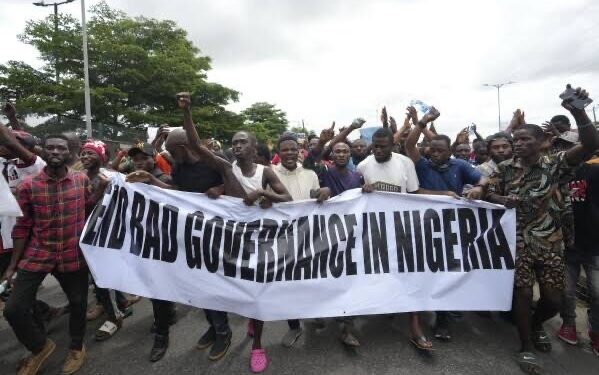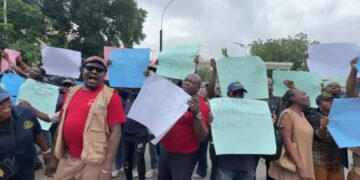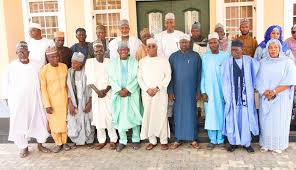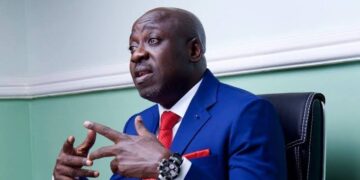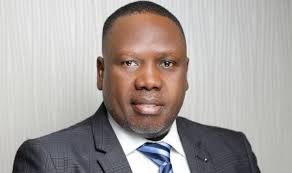The #EndBadGovernance protest, which aimed to address the escalating prices of food items, was completely avoided by all the South-East states of Nigeria. While there were no large-scale gatherings or significant protests in cities across the South-East, some believe that the people in the region participated in the protest in their own unique way.
Prior to the protest, numerous Igbo leaders and organizations, including the prominent socio-political group Ohanaeze Ndigbo, publicly advised against participating. They expressed concerns that joining the protest might lead to negative consequences, including potential violence and accusations directed at the Igbo community. Rt Hon Benjamin Kalu, the deputy speaker of the House of Representatives, also joined this call, emphasizing that participating in the protest, especially in areas outside their own region, could result in the Igbo being unfairly blamed for any resulting chaos. He warned that such involvement might lead to attacks on their properties and looting.
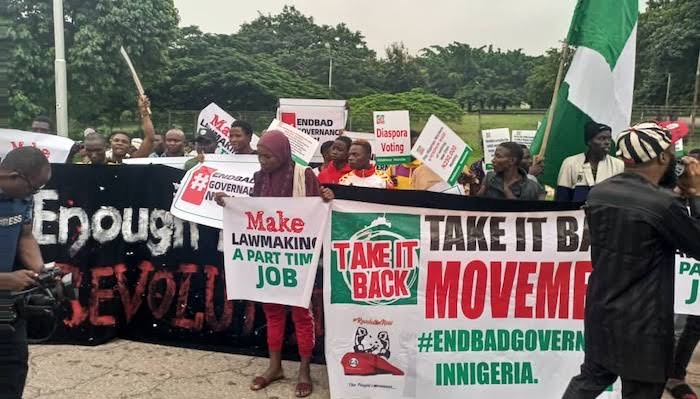
Responding to these warnings, the South-East states exhibited a strong aversion to the protest. For the first three days of the protest, no significant demonstrations or gatherings were observed in the region. Public spaces, such as Dr. Alex Ekwueme Square in Awka, which typically serve as hubs for protest activities, remained empty on August 1 and other protest days.
Instead of traditional protests, many people in the South-East opted for alternative forms of expression. For instance, in several towns, youths took to the streets to play football, using the occasion to demonstrate their stance in a non-confrontational manner. Others chose to gather in local drinking spots, enjoying food and drinks as their form of protest. This light-hearted approach was evident in various videos circulated on social media, showing gatherings in places like Enugu, Onitsha, and Awka where people celebrated and socialized as a way to mark the day.
One of the youths playing football in Awka, who identified himself as Ejike, explained that they were participating in their own protest by engaging in activities they enjoyed. Ejike mentioned that since the markets were closed, they decided to use the opportunity to play football on the usually busy streets. He emphasized that they chose not to partake in destructive protests and preferred to avoid any potential violence associated with them.
The decision to avoid participating in the protest was praised by local leaders. Governor Peter Mbah of Enugu State and Minister of Works Dave Umahi commended the South-East for staying away from the demonstrations. They argued that this decision helped prevent unnecessary loss of lives, damage to businesses, and property destruction. Both leaders suggested that this approach demonstrated a positive response to President Bola Tinubu’s administration and acknowledged ongoing efforts to address regional issues.
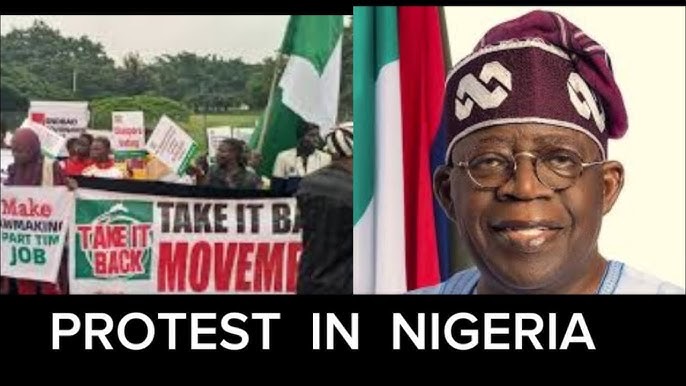
Governor Mbah highlighted that patience with government policies might eventually reveal their benefits, despite the current challenges. He emphasized that continued hard work and avoidance of destructive actions would contribute to a more stable environment.
Similarly, Minister Umahi noted that the South-East’s decision to avoid the protest was a significant gesture. He pointed out that the current administration had made notable efforts to include the Igbo community in governance, such as appointing Igbo individuals to key positions. Umahi argued that the infrastructure developments in the South-East justified the decision to refrain from protesting.
Mazi Okwu Nnabuike, the National President of the Ohanaeze Ndigbo Youth Council, also supported the non-participation. He remarked that the Igbo community had endured considerable hardship from past protests and had no interest in becoming scapegoats in the current situation. He emphasized that the President’s efforts should be recognized and that the Igbo people were not willing to be dragged into conflicts unnecessarily.
On the day of the nationwide protest, Anambra State Governor Charles Soludo was actively involved in launching an agricultural initiative in Amansea. His goal was to encourage local agriculture as a long-term solution to food security issues amid rising food prices. His press secretary, Mr. Christian Aburime, underscored the importance of leveraging local resources and labor to address the country’s food crisis.
Meanwhile, Dr. Nelson Omenugha from the Youths Earnestly Support Soludo group highlighted that the absence of protests in Anambra was due to proactive youth empowerment programs initiated by the governor, which kept the local youth engaged and focused.


